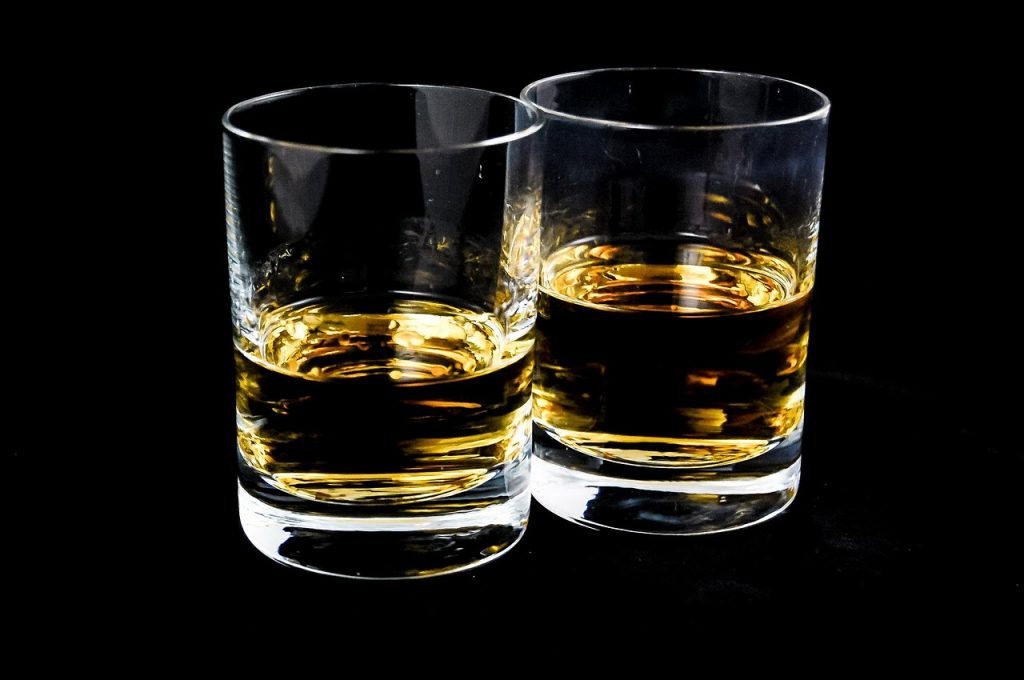 Moderate intakes of alcohol are associated with protection from cardiovascular disease. The exact amount of alcohol that is protective is not known, but evidence suggests that a single drink may reduce the risk of myocardial infarction for the subsequent 24 hours. In addition, certain alcoholic drinks are a rich source of polyphenols, and these appear to be bioavailable in humans. These polyphenols may confer disease protection because they act as antioxidants in animal tissues, and this may reduce inflammation and oxidative stress. However alcohol consumption is also associated with certain detrimental effects as intake rises. Heavy drinkers are at risk of a number of vitamin and mineral deficiencies due to improper absorption and altered metabolism of nutrients. In addition, the conversion of ethanol to fatty acids in the liver increases the accumulation of triglycerides in the hepatic tissue and this can lead to the development of alcoholic fatty liver disease and subsequently steatohepatitis and cirrhosis of the liver.
Moderate intakes of alcohol are associated with protection from cardiovascular disease. The exact amount of alcohol that is protective is not known, but evidence suggests that a single drink may reduce the risk of myocardial infarction for the subsequent 24 hours. In addition, certain alcoholic drinks are a rich source of polyphenols, and these appear to be bioavailable in humans. These polyphenols may confer disease protection because they act as antioxidants in animal tissues, and this may reduce inflammation and oxidative stress. However alcohol consumption is also associated with certain detrimental effects as intake rises. Heavy drinkers are at risk of a number of vitamin and mineral deficiencies due to improper absorption and altered metabolism of nutrients. In addition, the conversion of ethanol to fatty acids in the liver increases the accumulation of triglycerides in the hepatic tissue and this can lead to the development of alcoholic fatty liver disease and subsequently steatohepatitis and cirrhosis of the liver.

Alcohol consumption in moderation may confer a number of health effects. This may relate to both the ethanol component as well as the presence of a number of other constituents including polyphenols that are often present in alcoholic drinks. Polyphenols have been shown to be antioxidants in animal tissues and this may explain the inverse association between polyphenol intakes and cancer. However, alcohol intake is associated with an increased risk of cancer. The discrepancy may lie in the fact that alcohol consumption is associated with a number of other lifestyle habits that increase cancer risk. In particular, alcohol consumption is associated with smoking and a poor diet. Both of these factors may be the reason for the association between alcohol and cancer.
Cancer risk may also be modified by alcohol consumption. High intakes of alcohol increase the risk of many forms of human cancer, In particular, alcohol consumption may modify the risk of skin cancer. Previously it has been shown that alcohol consumption may increase the risk of sunburn occurring, although the exact reason for this is unclear. In large scale epidemiological studies, increasing cumulative alcohol consumption increased the risk of basal cell carcinoma in both men and women, compared to non-drinkers. With regard to the association, white wine and spirits showed individual associations with the risk of skin cancer. The exact reason for this association is not known as studies in this area have been limited. However, alcohol consumption is associated with other lifestyle habits such as smoking and poor quality diets, and these may be confounding variable in this case. Therefore unless a definitive mechanism is identified by which alcohol can cause skin cancer, it cannot be concluded that alcohol is carcinogenic.
Eat Well, Stay Healthy, Protect Yourself.
RdB
